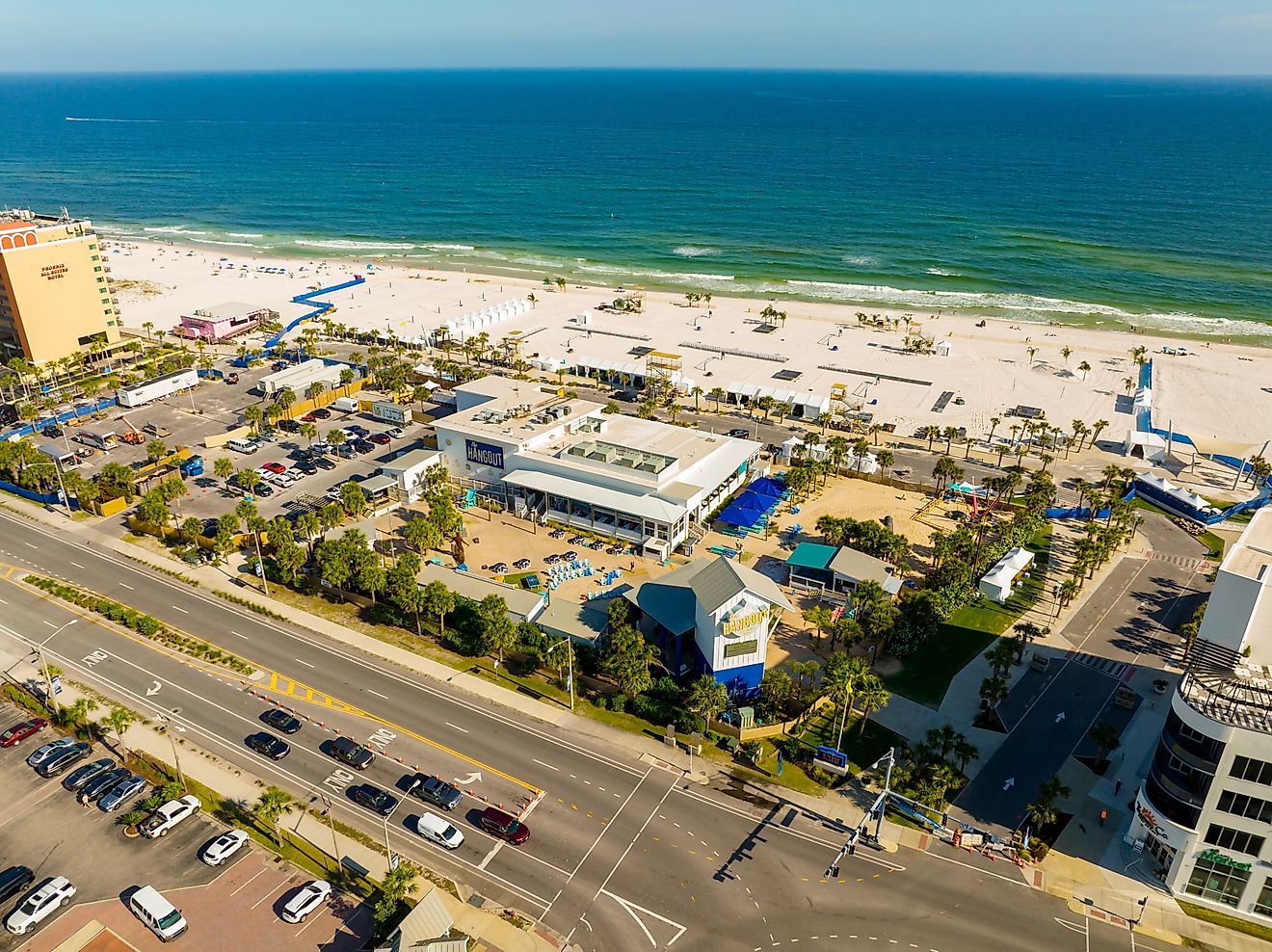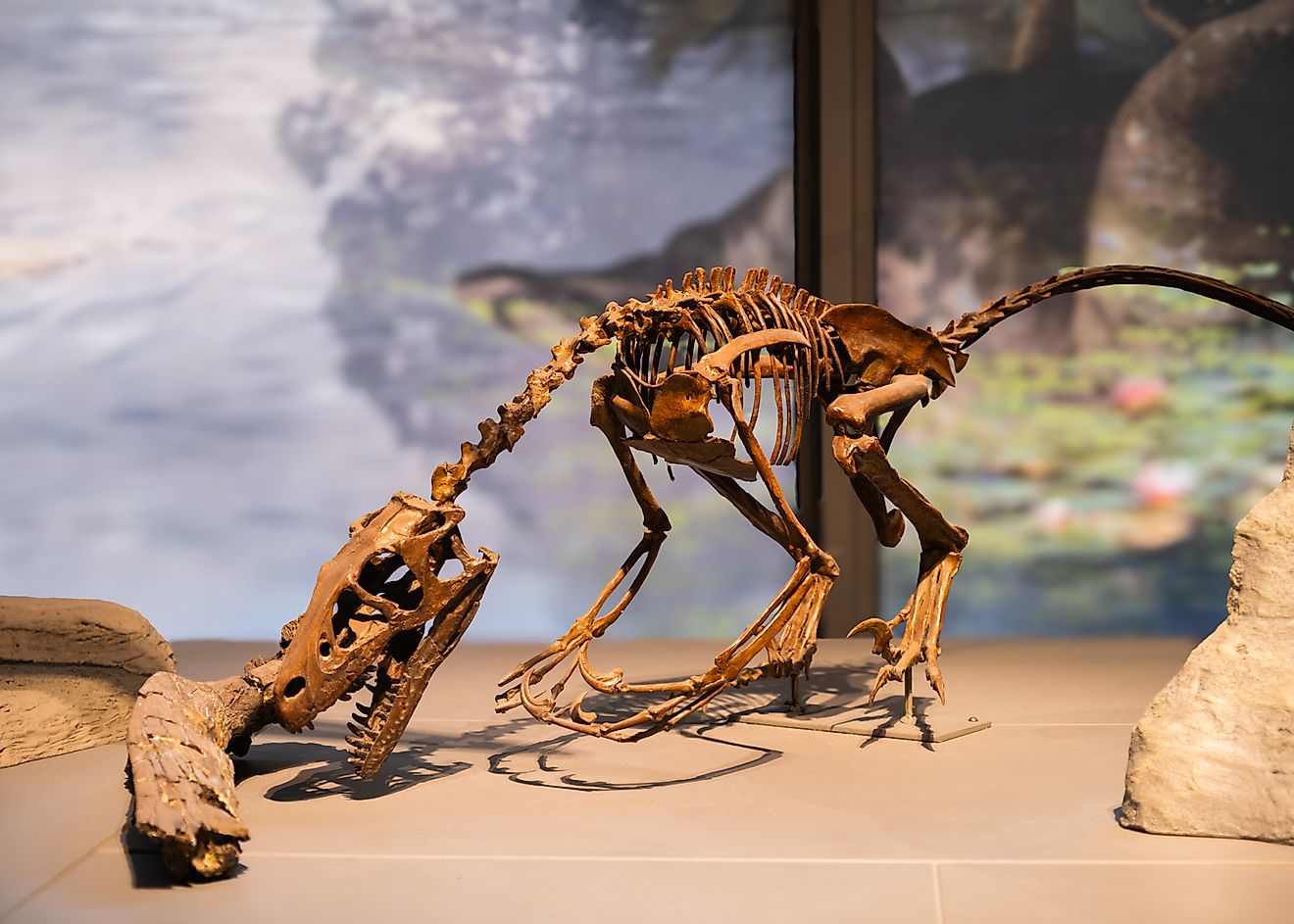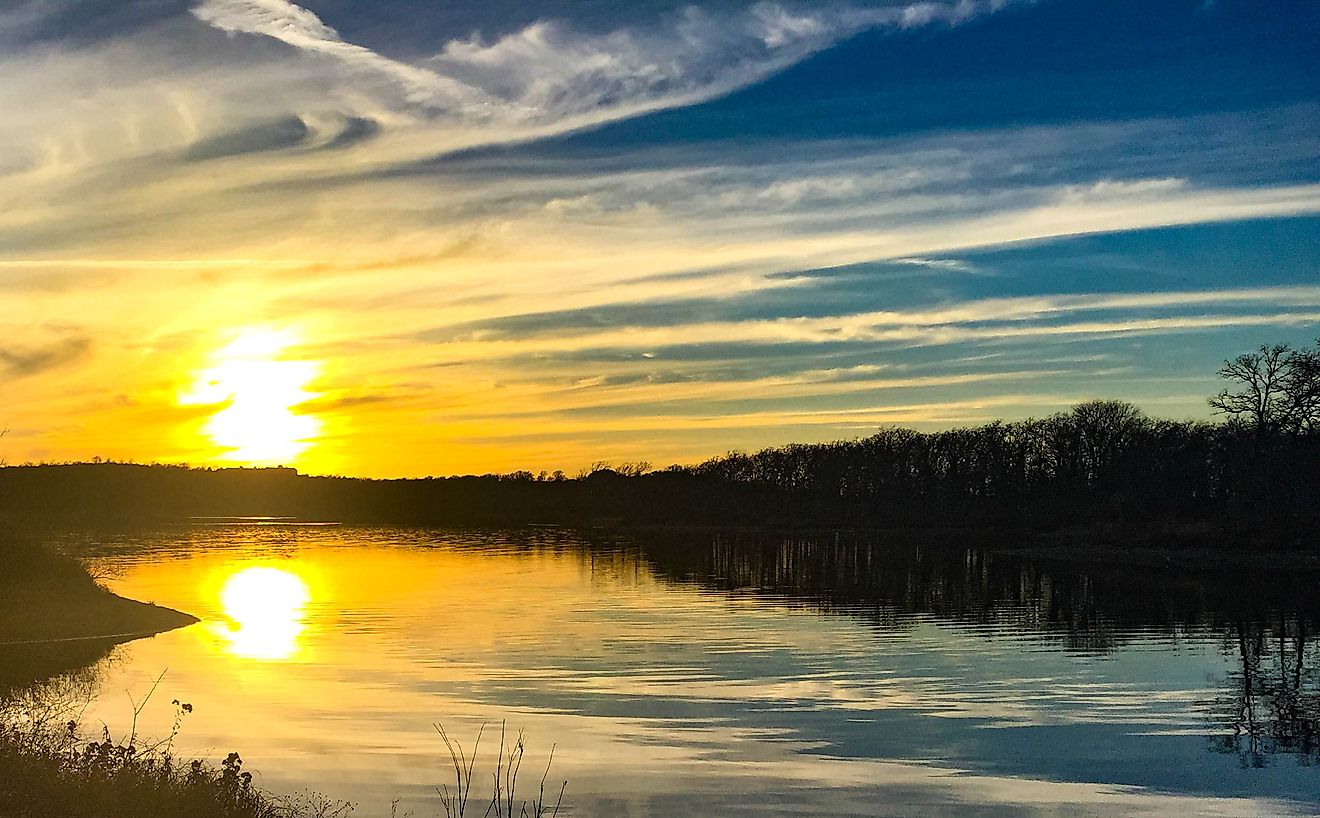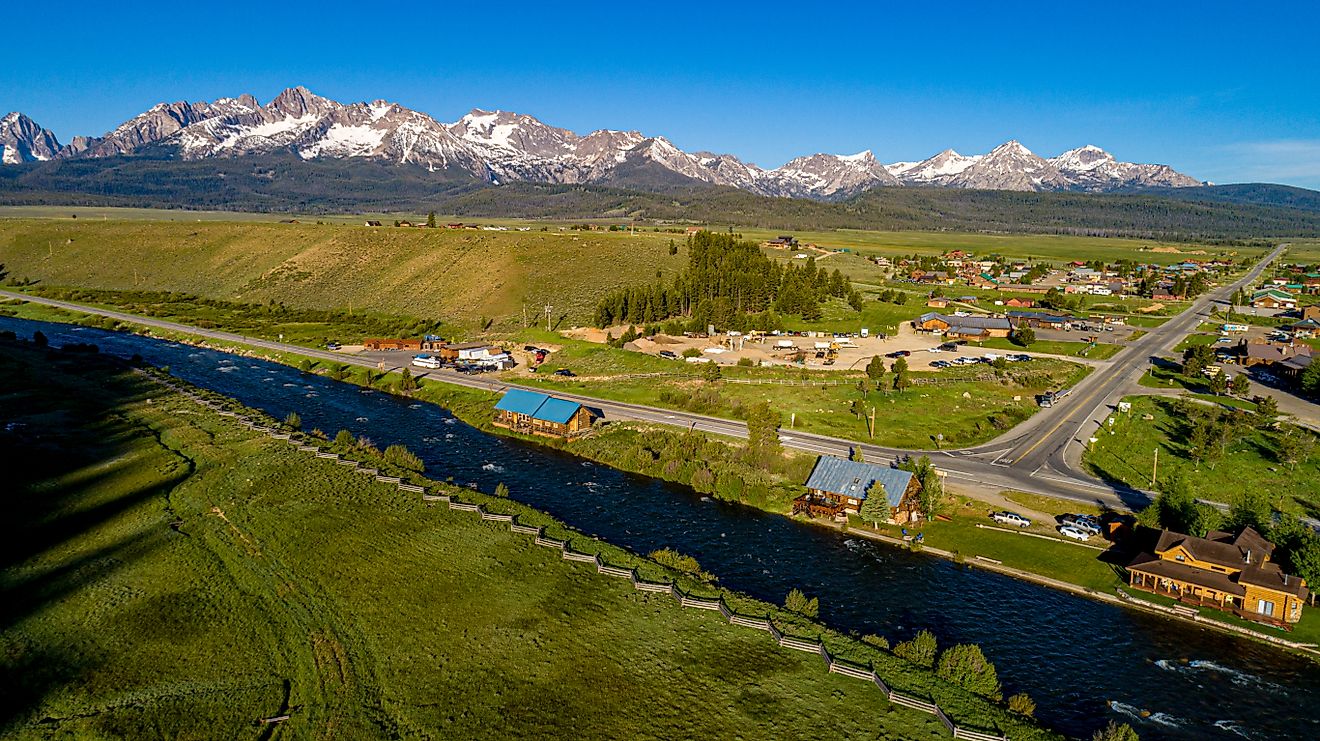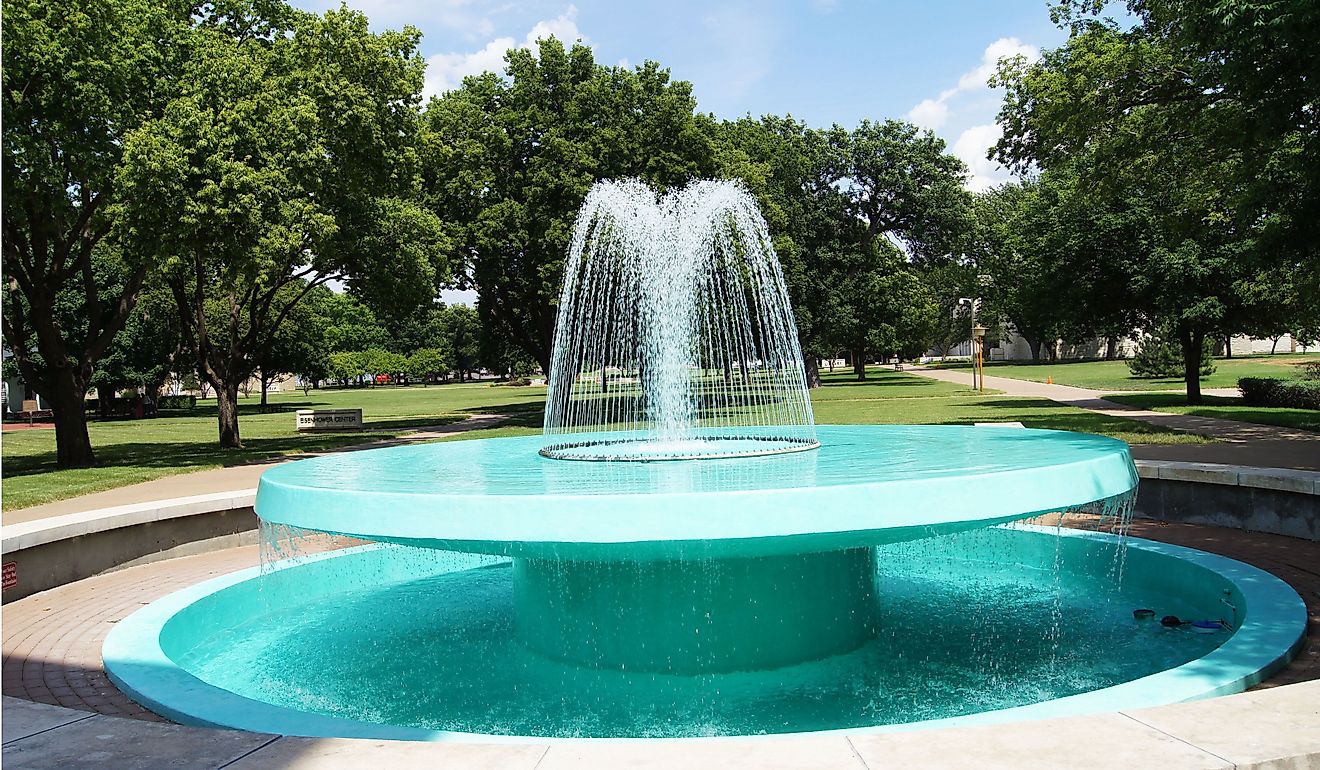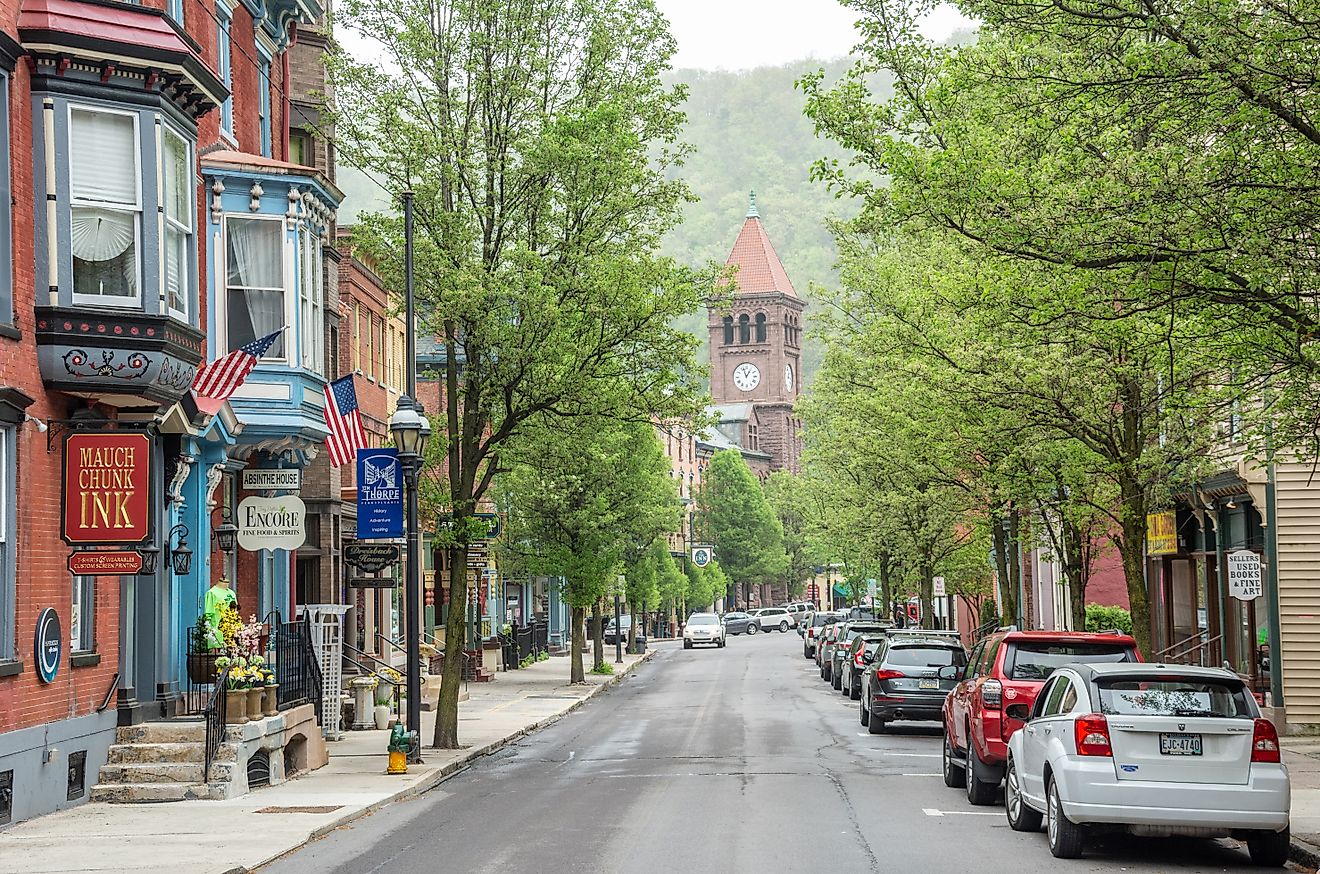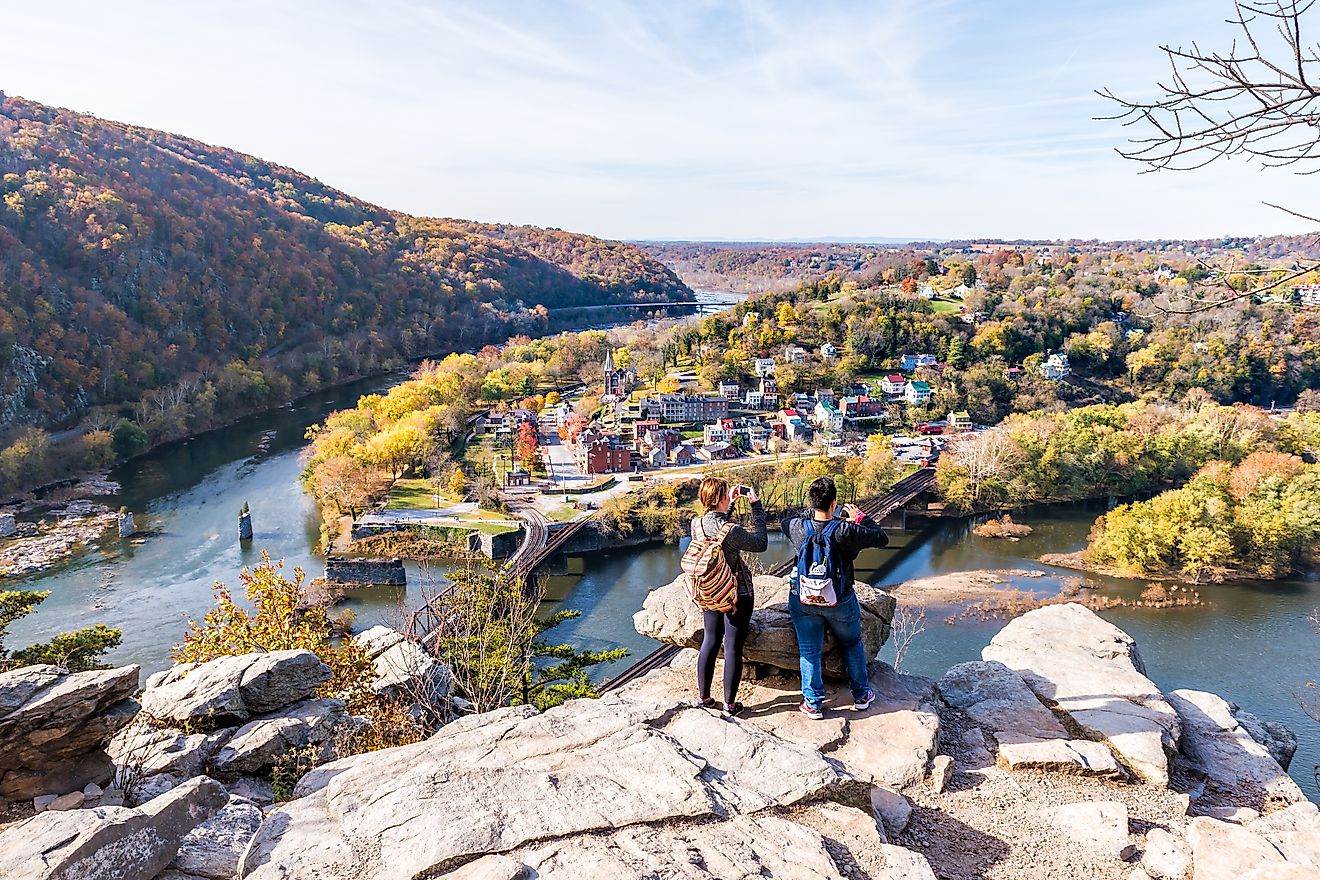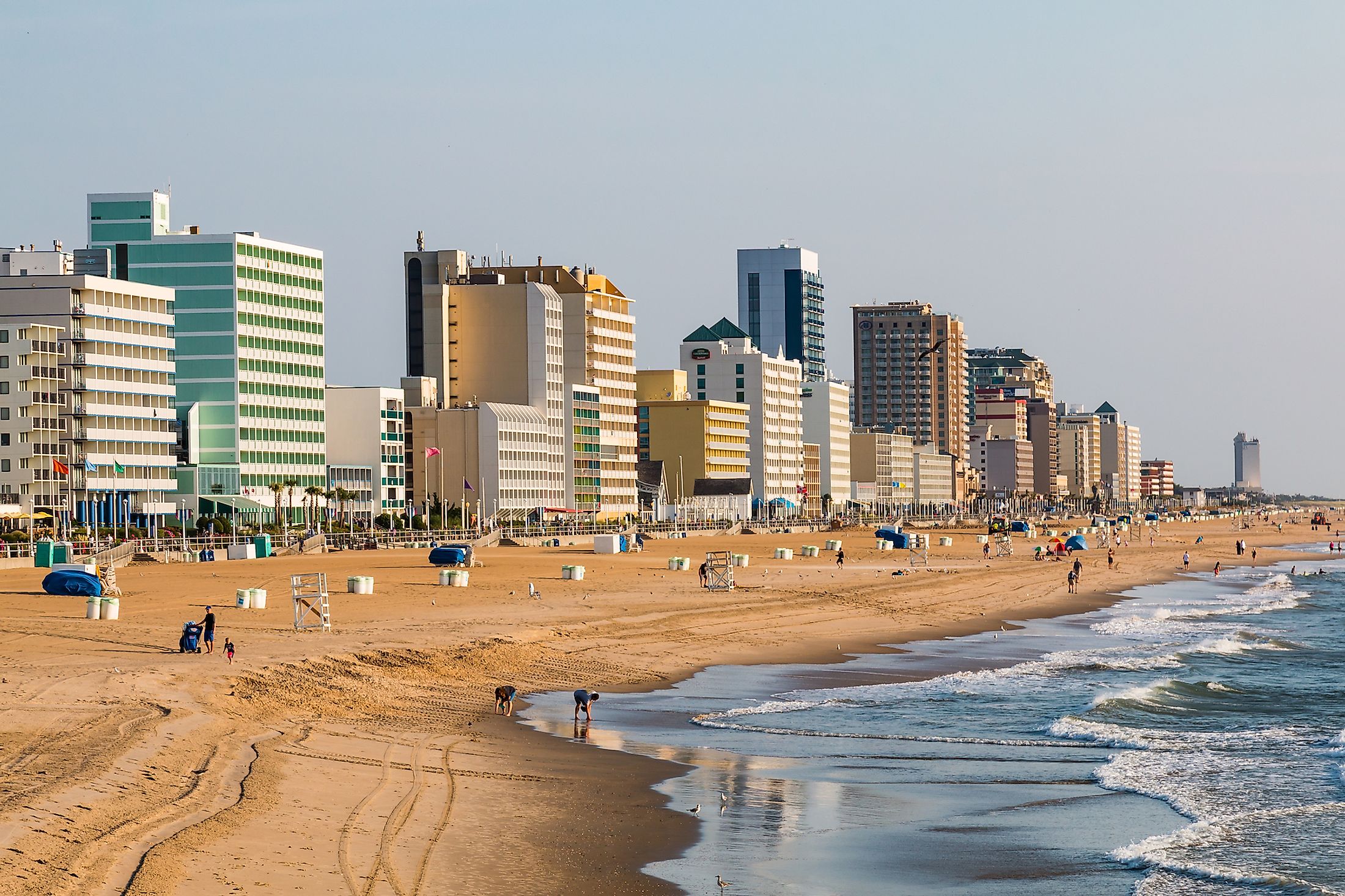
Virginia Beach, Virginia
Virginia Beach is a resort city known for its longest pleasure beach globally and the hundreds of restaurants with renowned seafood along the oceanfront. Historically significant, rich in the arts and culture, and with over 200 parks and nature reserves in the city's vicinity, anyone will find their favorite memory to bring home upon visiting Virginia Beach.
Set where the Chesapeake Bay meets the Atlantic Ocean, Virginia Beach was the landing site of the first English colonists, who would go on to settle in Jamestown in April 1607. Founded in 1887, Virginia Beach started developing as a resort with a hotel and a railroad linking to Norfolk. Following the First World War, it was a major base in the national coastal-defense system, while in 1963, the city merged with the former Princess Anne County as the City of Virginia Beach. Today, it comprises part of the "America's First Region" area, which includes the independent cities of Chesapeake, Hampton, Newport News, Norfolk, Portsmouth, and Suffolk.
Geography Of Virginia Beach
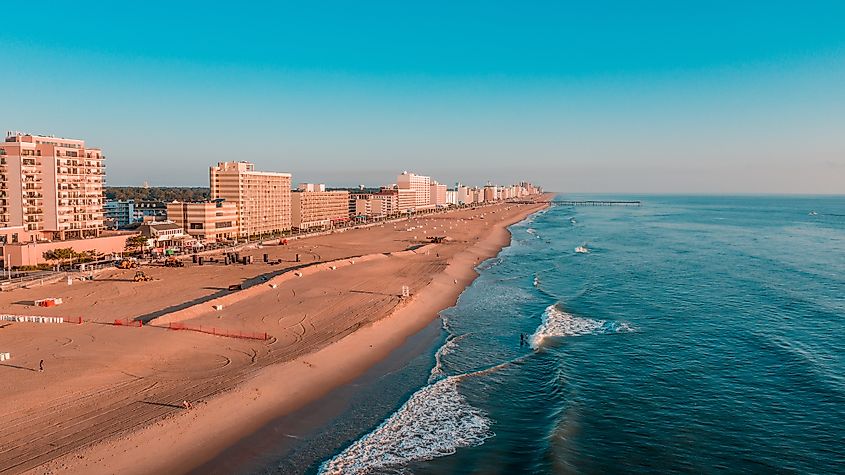
Set on in the Hampton Roads area bordering the Atlantic Ocean in the south-eastern corner of Virginia, Virginia Beach comprises 497 square miles (1,290 km2) in area, 49.9% of which is water. Adjacent to the cities of Norfolk and Chesapeake, Virginia Beach is an independent city, meaning that it is not part of any county.
The favorable geographic location has earned the city its reputation as a thriving getaway resort of the region. Set south of the storms originating in the higher latitudes and north of the hurricanes and other major tropical storms, Virginia Beach is a safe haven with almost-guaranteed calm weather. Being the north-most on the east coast allows many species of plants to thrive, including the widespread Spanish moss, despite the northerly location. The moderating effects of the Chesapeake Bay and the Atlantic Ocean also help plants like Sabal palmetto, Pindo Palm, Windmill Palm, and Hardy Citrus grow successfully.
Climate
The humid subtropical climate of Virginia Beach comprises hot, humid summers and cool winters with light snow, where the annual mean temperature is 59.6 °F (15.3 °C). The average annual snowfall of 3 inches (76mm) in the south-eastern corner almost doubles to the north. Average annual rainfall is between 47 inches (1,200 mm) and 50-some inches (1,300 mm) depending on the locale, with the most precipitation during spring and summer, although a thoroughfare throughout the year, as well. Set at an average elevation of 12 feet (3.7 m), it drains via the Lynnhaven River and its tributaries into the Chesapeake Bay.
Early History Of Virginia Beach
As evidence suggests, the Chesepian historic indigenous people speaking one of the Algonquian languages were the first occupiers of the region. The numerous tribes numbered in tens of thousands across the coast at the time of the European encounter. In 1607, a 144-day ocean voyage brought three ships headed by Captain Christopher Newport with 105 men and boys disembarking at the southern mouth of the Chesapeake Bay and naming it Cape Henry. Required to seek a site further inland, they moved to create their first permanent settlement on the north side of the James River at Jamestown.
Adam Thoroughgood paid for passage to the Virginia Colony as one of the earliest Englishmen to settle the area. Rising in ranks as a leading citizen, he was elected to one of the four subdivided areas, the House of Burgesses for Elizabeth Cittie, in 1629. Five years later, the Colony was divided into eight shires, or counties of Virginia, with Thoroughgood naming his county "New Norfolk County" after his home in England in 1637. Divided into Upper and Lower Norfolk Counties the next year, the Lower stretched west from the Atlantic Ocean, past the Elizabeth River, and encompassed the modern cities of Portsmouth, Norfolk, Chesapeake, and Virginia Beach.
Immigrant entrepreneurs fled to the area, including the William Moseley family from Rotterdam in 1648 that settled on the north side of the Elizabeth River (Virginia) and east of the future city of Norfolk. In 1691 Lower Norfolk County split into Norfolk and Princess Anne counties, with the latter stretching from Cape Henry at the mouth of the Chesapeake Bay south to the border of the North Carolina colony that included everything fronting the Atlantic Ocean. The rural area was known as a jurisdiction for over 250 years until the 19th century's arrival of the coastal rail service in 1883 when the small Virginia Beach began to develop as a resort.
Modern History Of Virginia Beach
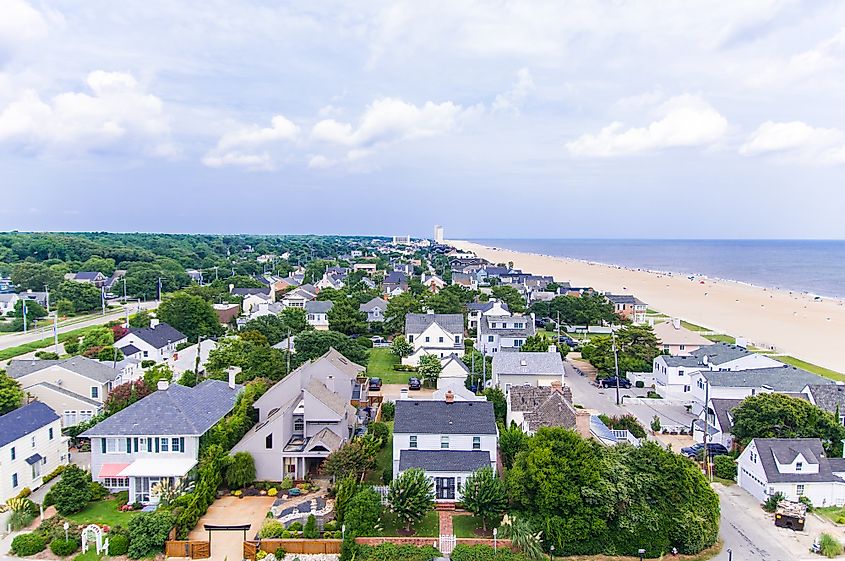
Reachable only by railroad and electric trollies, the resort became popular upon the completion of the Virginia Beach Boulevard in 1922. Incorporated in 1906, Virginia Beach continued to grow as a seasonal resort where casinos were replaced by amusement parks and family-oriented attractions, with The Cavalier Hotel opening in 1927. After gaining independent city status in 1952, the 1963 referendum combined it with Princess Anne County to form a much larger independent city.
The Town Center opened in 2003, and the Convention Center opened in 2005. When the northern urban side of the Green Line was filled to the brim, the rural southern side was developed with residential neighborhoods, which placed operating constraints on the Naval Air Station Oceana, a U.S. Navy's major fighter jet base.
Culture In Virginia Beach
The Military Aviation Museum has one of the world's largest aircraft collections from the two World Wars, including examples from Germany, France, Italy, Russia, the United Kingdom, and the United States. The Children's Museum of Virginia is the largest of its kind in the state. It features a planetarium, two floors of interactive exhibits, an antique toy and model train collection that is one of the largest on the East Coast, and a life-size tug boat and house, among other real-life exhibits adored by kids.
The ocean-bound Virginia Aquarium & Marine Science Center comprises a 300,000-gallon Norfolk Canyon Aquarium with sand tiger, nurse and brown sharks, and sting rays among other large marine life. The 70,000-gallon sea turtle aquarium has a sea turtle hatchling laboratory, interactive exhibits, jellyfish and octopus aquariums, as well as a life-size humpback whale model. There is also an Owls Creek salt marsh and a nature trail for more active discoveries.
Eighteen of the city's historical sites are listed on the National Register of Historic Places, such as the Adam Thoroughgood House as one of the oldest surviving colonial buildings in Virginia. There are also the Francis Land House comprising a 200-year-old plantation, the Cape Henry Lights, and the Bayville Farm.
Arts
Having originated from the annual Boardwalk Art Show in 1952, the notable Virginia Museum of Contemporary Art has showcased exhibitions of painting, sculpture, photography, glass, and video, among other visual media, from internationally acclaimed artists. Known as "MOCA," the museum is meant to foster awareness, exploration, and understanding of art significance at present. The Virginia Beach Amphitheater (1996) hosts a variety of shows and pop concerts, such as Taylor Swift and Coldplay, while the Sandler Center was the Town Centre's 1200-seat performing arts theatre that opened in 2007.
Festivals In Virginia Beach

500,000 visitors come annually to Virginia Beach for the city's largest festival, the Neptune Festival on the oceanfront, while the annual NAS Oceana is attended by 350,000. There are also events celebrating the city's Norway heritage held in September at the oceanfront and the Town Center. In August, the American Music Festival features live music on stages throughout the oceanfront and the beach on Fifth Street and ends with the Rock' n' Roll Half Marathon. There is also the annual East Coast Surfing Championships and the North American Sand Soccer Championship on the beach.
Parks And Recreation In Virginia Beach
210 unique parks with wide-open spaces, playgrounds, picnic shelters, and ball fields cover over 4,000 acres (1,600 ha) of the city's limits. Mount Trashmore Park with a skate park, Lake Windsor, and Lake Trashmore is most known for the 165 acres (67 ha) by a 60 feet (18 m) high and over 800 feet (240 m) long hill made of compacted solid waste and clean soil layers comprising the city's highest point. The rural Munden Point Park in the deep, south end on the North Landing River includes shelters, baseball fields, a boat ramp and boat rental, playgrounds, light hiking trails, and a rentable outdoor amphitheater. The Great Neck Park in the Lynnhaven District, 70 acres (28 ha) in breadth, offers all of the amenities and outdoor recreation options and a scenic walk along the banks of the Lynnhaven River ending in a gazebo.
The Back Bay brackish lagoon near the ocean at the south of the city occupying 39 square miles (101 square kilometers), includes a national wildlife refuge. The Back Bay National Wildlife Refuge (1938) is the largest natural area of 8,000-acre (32 km2) of freshwater bordering the ocean on the east and Back Bay on the west. The barrier islands are managed by the U.S. Fish and Wildlife Service and comprise grand sand dunes, maritime forests, freshwater marshes, ponds, ocean beaches, and large wintertime impoundments for wildfowl.
Landmarks In Virginia Beach

Edgar Cayce, a psychic who went down in history for his prophesies and healing abilities (also known as the father of the "New Age" movement in the 1960s) is remembered through the namesake Hospital for Research and Enlightenment in Virginia Beach, established in his honor in 1928. There is a large private library opened to the public with books on psychic matters, a traditional beach-architecture headquarters building with massage therapy, and the Atlantic University opened by Cayce himself, originally intended to study his readings and research on spiritual subjects.
Virginia Beach is in the Guinness Book of Records for having the longest pleasure beach in the world at its south end bound to the Chesapeake Bay Bridge Tunnel. The latter used to be the world's longest bridge-tunnel complex until the Hong Kong-Zhuhai-Macau Bridge opened in 2018. Built in 1888, the Virginia Beach Boardwalk is a celebrated place affectionately referred to as one of the favorite boardwalks of the nation. Set oceanfront, it comes with the King Neptune statue cast bronze in China at its intersection with 31st Street. There is also entertainment, a bike path, outdoor cafes, and forty hotels along its concrete 3-mile (4.8-km) breadth.

Set on Cape Henry, the southern entrance to the Chesapeake Bay, the Cape Henry Lighthouse has been significant for ocean-going shipping traffic in history and at present. The original lighthouse dating to 1792 was the first federal construction project under the Constitution. The second was built in less than a year, in 1881. Both received a designation as National Historic Landmarks in 1970.
Although the largest city in Virginia by total area and third-largest by land area with the most population, Virginia Beach still functions as a suburb. Considered more of an ocean-side resort district, it is a prime center for tourists, while Norfolk is recognized as the region's central business district.
